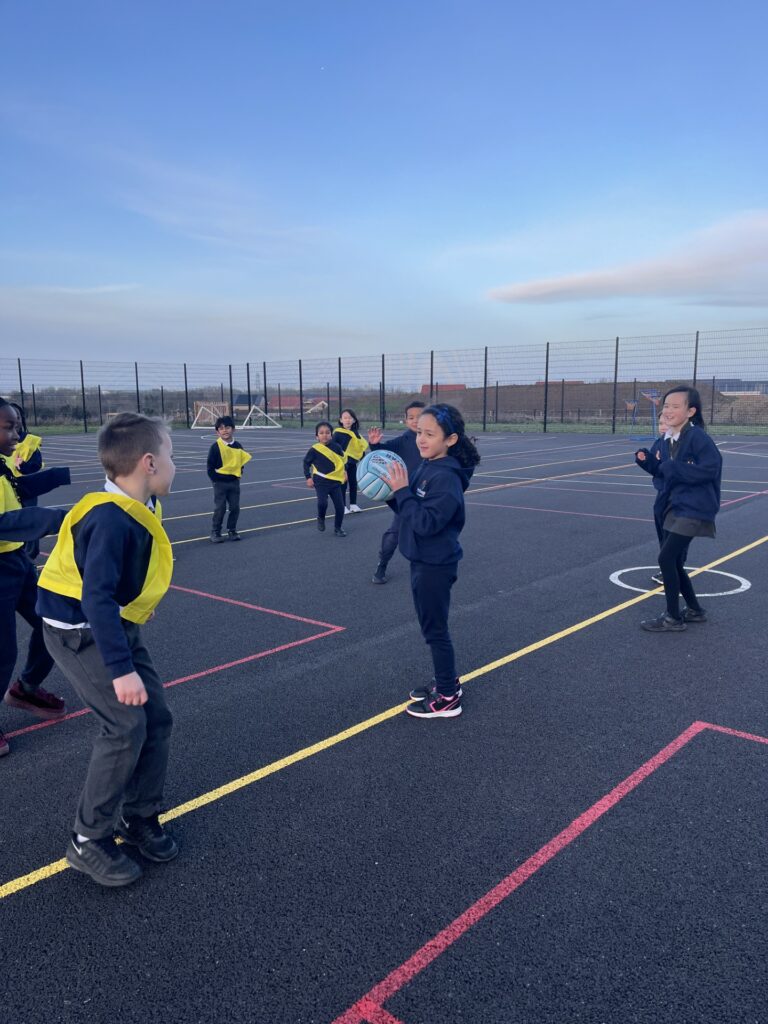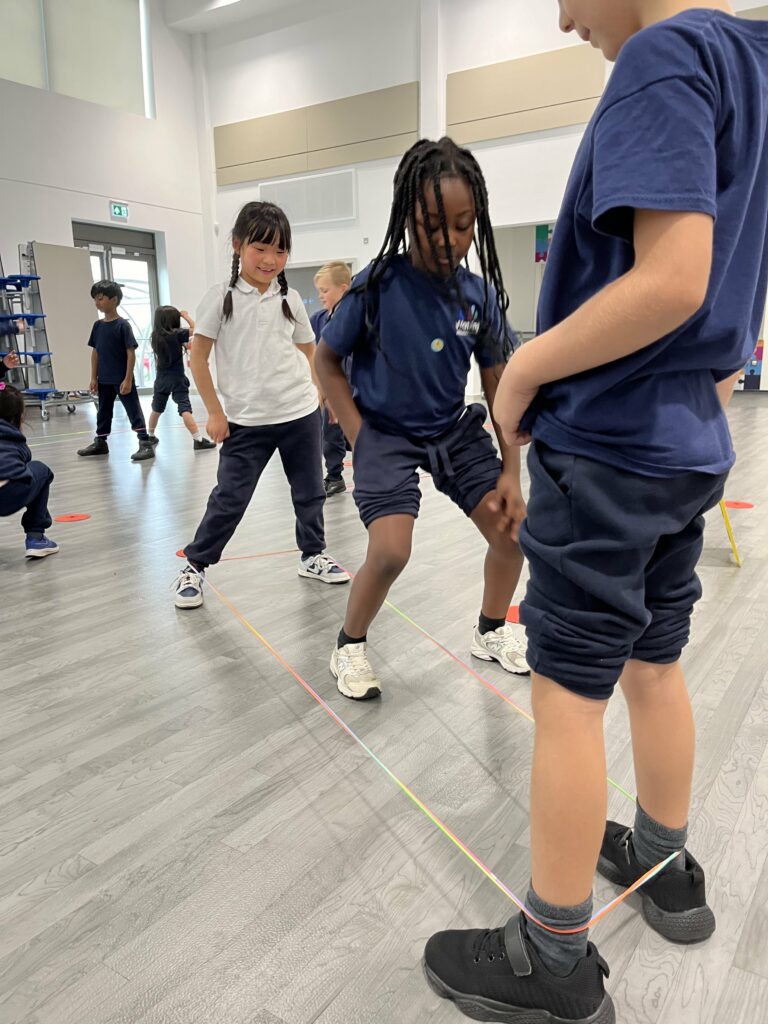Curriculum Intent
Our Curriculum Intent outlines the knowledge, skills and characteristics we want children to develop and learn throughout their time with us.
At Watling Primary School, pupils participate in a progressive and inclusive PE curriculum that exposes our children to a broad range of high-quality sporting opportunities.
Our PE curriculum enables pupils to develop fundamental skills and knowledge, as well as key values including teamwork, resilience, communication, fairness and respect.
We recognise that all pupils have unique and individual interests which should be nurtured in an enabling environment. We therefore aspire to provide children with opportunities to experience different activities and learn new skills in weekly PE lessons, one-off PE workshops, teacher-led activities at lunchtimes, and extra-curricular clubs and competitions.
We support children to apply tactical thinking and problem-solving across various sporting activities, fostering confident communicators who use technical language to share their thoughts and ideas.
We recognise and value the importance that physical activity has on nurturing our mental and physical health. We teach our pupils the importance of leading healthy and active lifestyles, making informed and appropriate lifestyle choices, and celebrating body positivity.
We empower children to become active learners, team-players and confident communicators through taking on play-leader roles with the responsibility of innovating, organising and evaluating sporting activities for themselves and their peers at playtimes.
By encouraging active learning, teamwork and celebrating individuality, we strive to enable all children to succeed, to enjoy their learning, to take part in new experiences, and to constantly aspire to achieve their potential.
Curriculum Implementation
Our Curriculum Implementation explains what we will do and how we will do it, to ensure that children learn and achieve what we intend them to.
PESSPA stands for physical education (PE), school sport (SS) and physical activity (PA). At Watling Primary School this includes PE and Forest School lessons, wider school sports events and competitions, extra-curricular clubs and enrichment opportunities.
Our approach to the teaching and learning of PESSPA includes the following:
- Three distinct PE units taught during the academic year, following the Get Set 4 PE scheme.
- Timetabled 1-hour PE lesson each week, including use of the indoor sports hall, sports field and MUGAs (multi-use gym areas).
- Lessons planned using progression maps and curriculum end points.
- Lesson objectives linked to Watling Way values and CAPTAIN Learning Characteristics.
- High-quality resources used to enhance lessons.
- Access to PE Knowledge Organisers.
- Daily opportunities to engage in physical activity before school and during break times e.g. daily mile, Aspiration Station challenges, etc.
- Involvement in intra-school sporting events e.g. Sports Day.
- Opportunities to attend extra-curricular PE clubs throughout the academic year.
- Opportunities to engage in sports festivals and competitive sporting events across the wider Milton Keynes community.
- Extra-curricular events (trips and/or visitors) linked to learning in PE as part of our wider enrichment offer.
- Six distinct Forest School units taught during the academic year.
- Timetabled 1 hour 15-minute Forest School session.
- Lessons planned using progression maps provided to teachers to ensure skills are clear.
- Lesson objectives linked to Watling Way values and CAPTAIN Learning Characteristics.
- High-quality resources used to enhance lessons.
Curriculum Impact
The impact of the implementation of our PE curriculum on outcomes for our children is monitored and evaluated at key points in the learning journey through the following methods:
- Formative and summative assessment strategies in line with our Feedback and Marking statement, including questioning and verbal feedback, and end of unit mini assessments
- Pupil voice
- Learning walks and lesson visits
- Termly Subject Lead monitoring meetings
- Analysis of PE MAPs (Monitoring Attainment and Progress spreadsheets)
The National Curriculum Programmes of Study for PE for Key Stage 1 and 2 provide further information.






